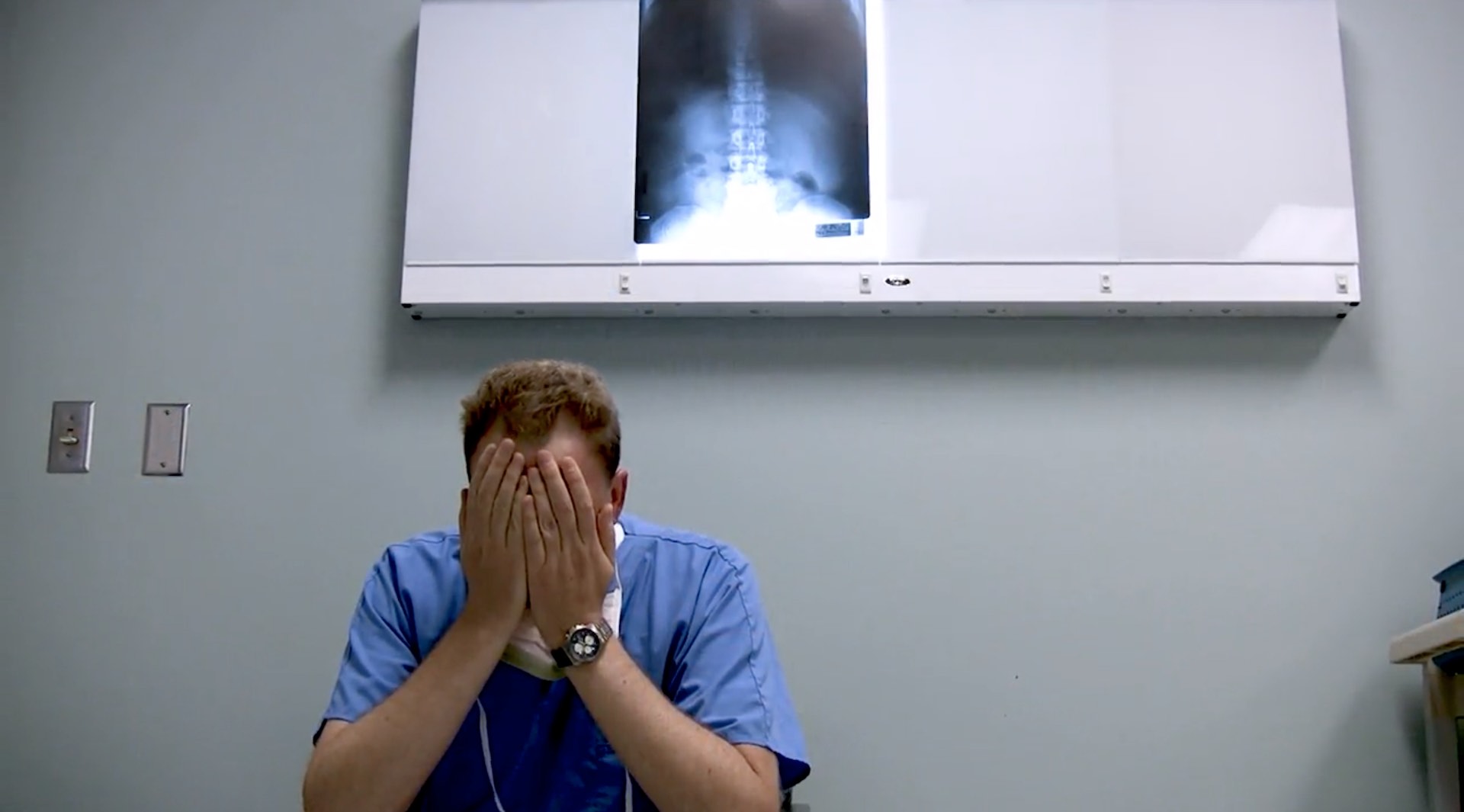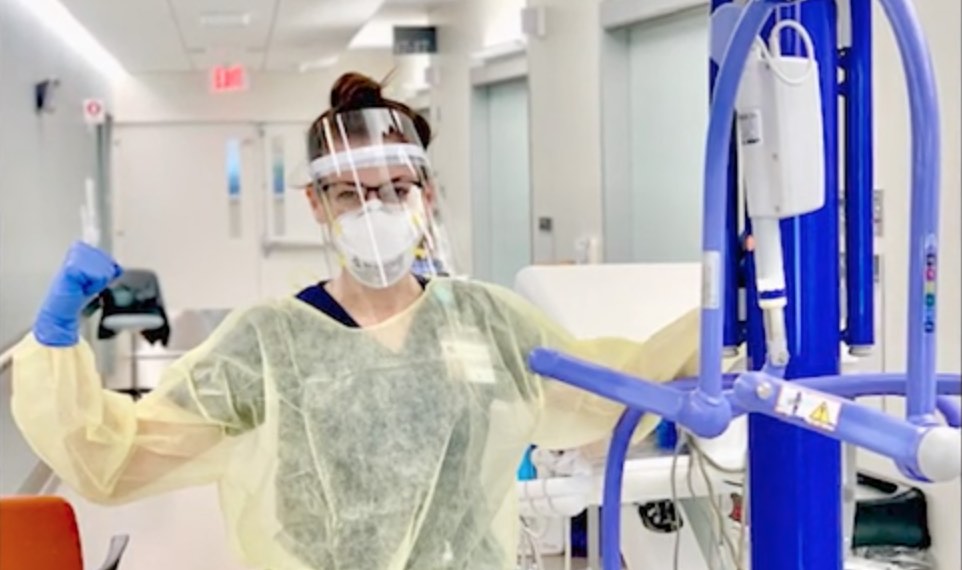Low-dose liposomal amphotericin B effective for AIDS-relate cryptococcal meningitis
Reuters Health • The Doctor's Channel Daily Newscast
June 28, 2010 • Critical Care, Emergency Medicine, HIV/AIDS, Infectious Diseases, Internal Medicine, Neurology, Pharmacists, Reuters Health • The Doctor's Channel Newscast
NEW YORK (Reuters Health) – The adverse effects of conventional amphotericin B for treating acute cryptococcal meningitis in AIDS patients can be reduced significantly by using the liposomal formulation of the drug at a relatively low dosage — without greatly compromising efficacy.
The finding is reported by Dr. Richard J. Hamill with the Michael E. DeBakey VA Medical Center, in Houston, Texas, and colleagues. They point out in their paper in Clinical Infectious Diseases for July 15 that that the study was conducted before the introduction of highly active antiretroviral treatment when up to 10% of AIDS patients contracted invasive cryptococcal disease. While the incidence has dropped in the HAART era, the infection still occurs in patients in resource-poor settings.
For the current study, 267 patients in the US and Canada with AIDS-related cryptococcal meningitis were randomized to conventional amphotericin B at 0.7 mg/kg/day (n=87), or liposomal amphotericin B at 3 mg/kg/day (n=86) or at 6 mg/kg/day (n=94).
Therapeutic success rates at 10 weeks in the three groups were 75.5%, 67.5%, and 73.7%, respectively. Overall 10-week mortality was 11.6%, with no significant difference between the three treatment groups. Ten of the 31 deaths could be directly attributed to cryptococcal disease.
However, there were significant differences in adverse events. Infusion-related side effects such as rigor or vomiting occurred in 66.7% of those given conventional amphotericin, but only 37.2% of those given the higher dose of the liposomal drug and 31.4% of those given the lower dosage.
Nephrotoxicity rates were also lower at 14.9% in the 3-mg/kg/day liposomal group, compared to 20% in the higher-dose liposomal group and 29% in the conventional amphotericin arm.
“The results of our study indicate that dosages of liposomal amphotericin B >3 mg/kg/day provide no substantial additional benefit,” the investigators conclude.
Nonetheless, they say that conventional amphotericin should still be considered the drug of choice for treatment of AIDS-associated cryptococcal meningitis, because discontinuation rates are not excessive despite the side effects.
“However,” Dr. Hamill and colleages advise, “in those individuals who have preexisting renal disease or intolerable infusion-related toxicity, liposomal amphotericin B at doses of either 3 or 6 mg/kg/day appears to provide an equally efficacious alternative.”
Reference:
http://dx.doi.org/10.1086/653606
Clin Infect Dis 2010:51.
The finding is reported by Dr. Richard J. Hamill with the Michael E. DeBakey VA Medical Center, in Houston, Texas, and colleagues. They point out in their paper in Clinical Infectious Diseases for July 15 that that the study was conducted before the introduction of highly active antiretroviral treatment when up to 10% of AIDS patients contracted invasive cryptococcal disease. While the incidence has dropped in the HAART era, the infection still occurs in patients in resource-poor settings.
For the current study, 267 patients in the US and Canada with AIDS-related cryptococcal meningitis were randomized to conventional amphotericin B at 0.7 mg/kg/day (n=87), or liposomal amphotericin B at 3 mg/kg/day (n=86) or at 6 mg/kg/day (n=94).
Therapeutic success rates at 10 weeks in the three groups were 75.5%, 67.5%, and 73.7%, respectively. Overall 10-week mortality was 11.6%, with no significant difference between the three treatment groups. Ten of the 31 deaths could be directly attributed to cryptococcal disease.
However, there were significant differences in adverse events. Infusion-related side effects such as rigor or vomiting occurred in 66.7% of those given conventional amphotericin, but only 37.2% of those given the higher dose of the liposomal drug and 31.4% of those given the lower dosage.
Nephrotoxicity rates were also lower at 14.9% in the 3-mg/kg/day liposomal group, compared to 20% in the higher-dose liposomal group and 29% in the conventional amphotericin arm.
“The results of our study indicate that dosages of liposomal amphotericin B >3 mg/kg/day provide no substantial additional benefit,” the investigators conclude.
Nonetheless, they say that conventional amphotericin should still be considered the drug of choice for treatment of AIDS-associated cryptococcal meningitis, because discontinuation rates are not excessive despite the side effects.
“However,” Dr. Hamill and colleages advise, “in those individuals who have preexisting renal disease or intolerable infusion-related toxicity, liposomal amphotericin B at doses of either 3 or 6 mg/kg/day appears to provide an equally efficacious alternative.”
Reference:
http://dx.doi.org/10.1086/653606
Clin Infect Dis 2010:51.









